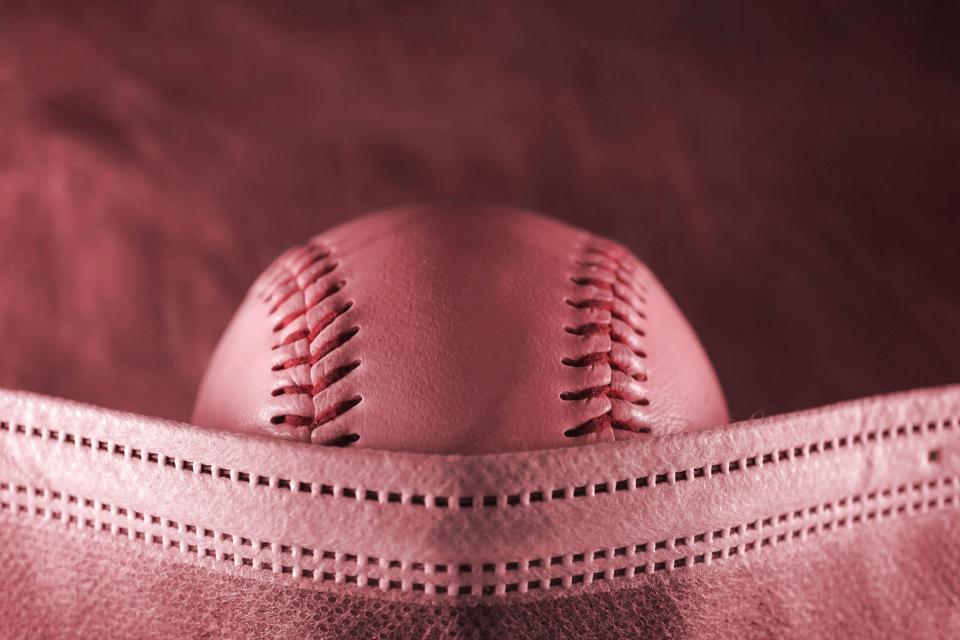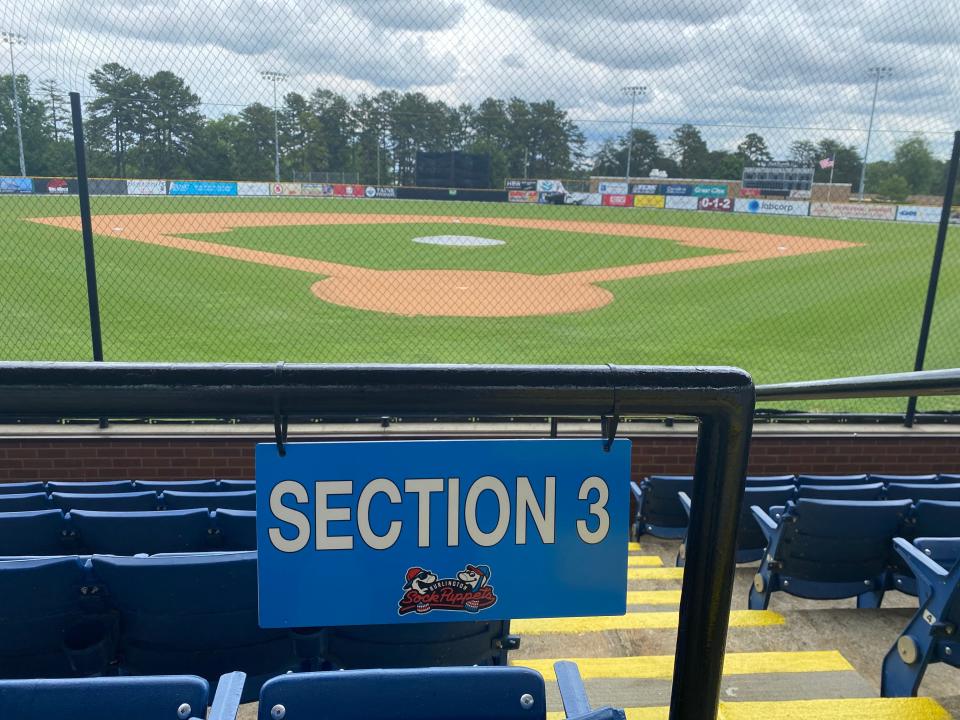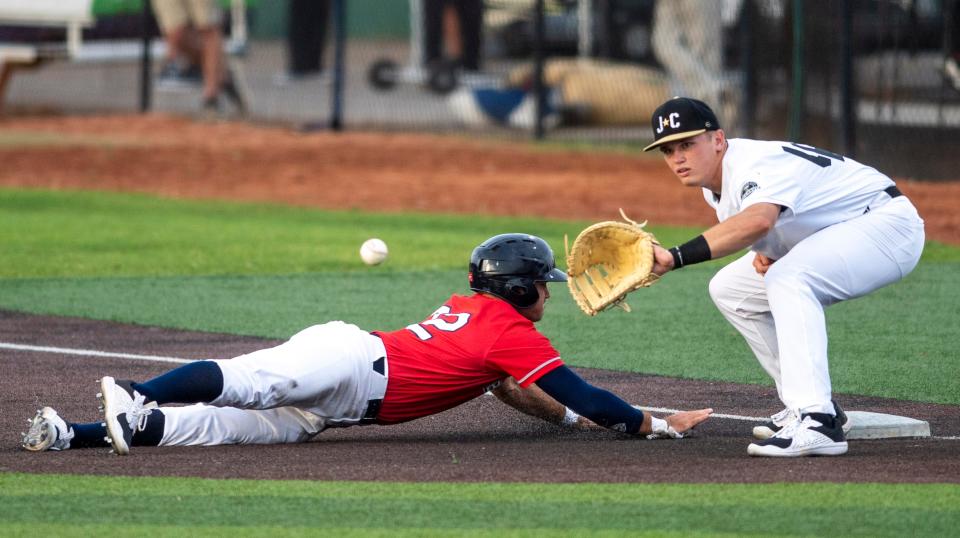'We’re guessing:' Appalachian League fraught with disarray, COVID-19, frustration

Rick Magnante has been in baseball for 40 years, and just experienced a season unlike any he’s ever seen. Magnante, who was manager of the Johnson City Doughboys, one of 10 teams in the Appalachian League, was fired abruptly on Aug. 1.
He said he hasn’t been told why he was dismissed but believes it was because he and his players refused to play a game out of concerns for COVID-19.
“(MLB) fired me for refusing to play a game in a COVID environment. Not suspended me, fired me,” he said. “They fired me for protecting my players against COVID.”
Magnante was not alone in his frustration this season. USA TODAY Sports interviewed 15 Appalachian League players, coaches and staff members who said the league did a poor job of handling COVID-19. They said protocols provided at the start of the season were inadequate. What rules existed were not consistently enforced. And communication with management was spotty, leading some managers and coaches to develop their own protocols.
“We were having to go about it on the fly,” said one coach. “There really wasn't ever a definitive, ‘This is how it's going to be.’ ”
Some of the people interviewed requested anonymity because they feared retribution from Major League Baseball, which funds and supports the league, USA Baseball, which operates it, and Boyd Sports LLC, which owns three teams and operates one team in the league.
“When we first got there, there wasn't really much of a protocol, honestly,” said MJ Lucas, a catcher for the Bristol State Liners. “It was very open until we started having cases. None of us wore masks.”
Lucas said he felt the weekly testing mandate from the league was insufficient, so he went to a CVS drug store to buy COVID-19 tests to take in his dorm room at East Tennessee State University, where Bristol’s players were housed.
“I was more worried about going home, because my younger brother isn't vaccinated,” he said. “I didn't want to bring it to him.”
In August, Bristol had to cancel the remainder of its season when 15 players and staff tested positive. Another team, the Elizabethton River Riders, had four positive cases, who were then allowed to travel home while sick instead of quarantining for 10 days, as is recommended by the CDC, according to a person who worked for the club. An MLB spokesperson said that the league reported 22 positive cases for the season, among all players, coaches, managers and staff.
MLB, USA Baseball and Boyd Sports deny that Magnante was fired for refusing to play because of COVID-19 issues, or that players’ health and well-being was secondary to playing games.
“The reasons for Rick Magnante’s dismissal were entirely unrelated to COVID protocols. Suggesting otherwise is simply inaccurate,” said an MLB spokesperson, who did not provide a specific reason for Magnante’s dismissal.
“The league worked closely with clubs affected by COVID-19 to determine the best next steps for their individual needs,” USA Baseball said in a statement. “This included postponing or cancelling multiple games and series to allow for contact tracing and additional testing before the resumption of play.”
Appalachian League president Dan Moushon, when reached for comment, referred to the season as “safe and successful” in the midst of a global pandemic, and added that the league will “learn from our experiences this year.”
Major League Baseball’s oversight of the minors has been scrutinized in recent years. Players throughout the minor leagues have raised concerns about working conditions and low pay, with multiple active lawsuits.
In the Appalachian League, some attribute the league’s problems related to COVID-19 to this being its first year under a new structure. In 2021, as part of MLB’s reorganization of the entire minor leagues, the Appalachian League, which operates in Tennessee, Virginia, West Virginia and North Carolina, was changed from a professional baseball league into a summer collegiate league.
SUBSCRIBE: Help support quality journalism like this.
Previously, Appalachian League staff members would report to their MLB parent clubs, which would subsidize the advanced-rookie level teams. Now, MLB parent clubs aren’t involved, and Appalachian League staff members report to USA Baseball and MLB. Reporting to two parties — three, with the teams operated by Boyd Sports — made communication difficult in the league’s inaugural season, coaches and staff said.
These problems were merely an inconvenience for staff members for most of the season but became more serious after the All-Star Game in July in Pulaski, Virginia.
“After we came back from the All-Star Game, a lot of people were starting to feel some kind of sick, runny nose and sore throat,” said Larry McCall, Bristol’s pitching coach, who was also at the All-Star Game. “I don't know where it started. We played a few games, and it didn't seem like it affected too many guys on the team. But then, after that, it snowballed. It wasn't just our team. It was a couple of other teams, too.”
Protocols were a 'joke'
The Appalachian League was founded in 1911 and went through several iterations before it began operating as a short-season league in 1957. In its 84-year history as a professional baseball league, it produced eight Hall of Famers, 13 MVP Award winners, 10 Cy Young Award winners and 17 Rookies of the Year.
Allen LaMountain, who covered the league from 1998 to 2019, and wrote the book “Appalachian League Baseball: Where Rookies Rise,” said that big league players often cite the Appalachian League as key to their development.
“It was a great instructional league,” he said. “People were rising through the ranks and doing real well once they got to the higher levels. We've got kids like Max Kepler up there now in Minnesota, and Bo Bichette and Vlad Guerrero in Toronto. It was a continuing pipeline that was just getting better.”

With decades of longevity to lean on, and a clear chain of command for staff members, the league was operating smoothly on the ground.
“You knew what you had to do,” said one staff member who was hired before the reorganization. “Now, we’re somewhat in the dark. We’re guessing.”
Coaches and staff members said they found it frustrating to constantly be redirected to various USA Baseball, MLB or Boyd Sports employees in a time of need, particularly when it pertained to COVID-19 issues.
Before the league opened in early June, staff received a two-page memo, a copy of which was obtained by USA TODAY Sports, which outlined COVID-19 protocols, including weekly testing for unvaccinated players, mandatory face coverings while indoors for unvaccinated players and a strong recommendation to avoid celebratory fist-bumps, high-fives and handshakes. Players and coaches were not required to be vaccinated.
What was not described was how these protocols would be enforced or who would be enforcing them. USA Baseball designated one of its employees, Sarah Cox, to handle COVID-19 testing throughout the league, but it was only part of her job as assistant director, education. She worked remotely, from USA Baseball’s headquarters in North Carolina.
“There wasn't really anything we weren't allowed to do because of COVID,” said Lucas, the Bristol catcher. “We didn’t really hear about any protocols until people started getting sick."
One person who worked closely with Elizabethton said that for the most part, players didn’t wear masks on buses or inside clubhouses.
"At the beginning of the season we were very lax about protocols,” he said. “No one was wearing masks, there wasn't any distancing."
USA Baseball said the COVID-19 protocols in the Appalachian League were based on those used in for the major leagues and MLB-affiliated minor leagues, adding that more than 1,800 PCR tests were administered throughout the league this summer. But the Appalachian League’s two pages of protocols are not nearly as expansive as MLB’s, which outlines its COVID-19 testing protocols over 25 pages in its 2021 operations manual.
Differences include PCR testing every other day for asymptomatic MLB players and managers, a committee to oversee testing across the league and each team being required to designate an employee or contractor to enforce the protocols. In addition, all 30 clubs were required to submit a COVID-19 action plan, containing procedures for testing, isolating and treating players.
Dr. Sten Vermund, a professor at the Yale School of Public Health, reviewed the Appalachian League’s guidelines and said the potential to protect players and staff was “very high” but only if guidelines were strictly followed and enforced.
Dr. Céline Gounder, an infectious disease specialist and epidemiologist at NYU and Bellevue Hospital, who was a member of the Biden-Harris transition COVID-19 advisory board, expressed concern about the weekly testing for unvaccinated players, particularly in Tennessee, Virginia, West Virginia and North Carolina, where vaccination rates are lower and COVID-19 cases were higher during the summer.
“The issue with testing once per week is that with the delta variant, the incubation period is shorter, because it's more infectious,” she said. “You really need to be testing two to three times a week … if you want to be picking people up early enough to then isolate them. In this instance, you're trying to isolate them before they can spread. And if you're only doing once-a-week testing, you're not going to be able to isolate them quickly enough. So once a week is not adequate.”
Gounder also said allowing fully vaccinated players to go maskless indoors was inadequate, and like Vermund, emphasized the need for enforcement.
“It's like any law,” she said. “You can trust some people to be law abiding, but unfortunately, sometimes the laws need to be enforced because people don't always abide by the law. And this is a similar situation. Unfortunately, there are a lot of people who think they're above public health regulations and guidelines.”
By comparison, the Cape Cod Baseball League in Massachusetts, a premier collegiate summer league unaffiliated with MLB, hired an employee for each of its 10 teams to serve as a “COVID Captain.” The captain’s job was to enforce COVID-19 protocols and keep track of positive cases, symptoms and testing, and report to the league. Players were required to get vaccinated before the season, barring a medical or religious exemption. The Cape Cod league reported one positive COVID-19 case among players during the regular season, according to league commissioner Eric Zmuda.
Without someone specially assigned to enforce protocols or address issues in the Appalachian League, many coaches and staff members, who already had their hands full with a six-game-a-week schedule, said the season became exhausting and disorganized.
There were times when coaching staffs — struggling to get direction from USA Baseball and MLB — developed their own COVID-19 protocols. Or they would reach out to other teams to see what they were doing.
“This being the inaugural season, I expected some bumps, but the people that were in charge were basically non-existent in taking charge,” said one Appalachian League staff member. “There were times when we'd have a player test positive, and we'd call up (USA Baseball and MLB) asking about COVID protocols. It would be different for every team.
"It got to the point where it was becoming a joke as far as protocols were concerned.”
'Tell them what happened'
By the box score, the Appalachian League All-Star Game was a success. The West beat the East 10-9 in a tie-breaking home run derby. The game was aired on MLB Network and highlights were shown on SportsCenter, including video of players celebrating in a dog pile at home plate — a violation of the league’s protocol advising players to avoid contact.
Robert Parker, a public information officer for the Virginia Department of Health who represents Pulaski where the game was played, said there is no evidence that the All-Star Game led to any positive cases, but players and coaches have their suspicions.
Two days later, on July 29 and after four positive tests, three of Elizabethton’s games were canceled. Then on Aug. 4, the remaining four games of Bristol’s season were canceled as the team reported 15 positive cases among players and staff.
Magnante and Johnson City’s players found the cancelation of Elizabethton’s three games concerning. Elizabethton’s players shared dorm housing at East Tennessee State with Johnson City’s players, and the teams were set to face each other on Aug. 4, so Magnante said he contacted USA Baseball to see if the canceled games were COVID-19 related. He said he was told that Elizabethton did not have enough players, but COVID-19 was not mentioned as the reason why. (Those games have since been marked as COVID-19 cancellations on Elizabethton’s website).
On Aug. 1, with a game against Greeneville scheduled that night, Magnante said his staff was told by the opposing coaches that there was a player on Greeneville who had tested positive and returned home. Another player who had been in close proximity to the positive-case player was isolated, but Magnante’s players felt that was not enough.
With the season scheduled to conclude on Aug. 7 and many players planning to return home to families, there was growing concern about being exposed to COVID-19. Magnante said he gave USA Baseball and MLB an ultimatum about the Aug. 1 game: Test the players or Johnson City would not play.
“MLB told me that they have a protocol in place, that they’re in charge of it,” Magnante said. “They said they’d test them the following day, but not that day. I was not given an alternative option, like a doubleheader the next day. I told them that if they’re not going to test their players today, then we’re going on the bus and going home. And that’s what we did.”
MLB denied that Magnante was not given an alternative and said that his account is an “inaccurate mischaracterization of the discussion.”
“These protocols were correctly followed in the Johnson City vs. Greeneville game,” an MLB spokesperson said. “There were no additional positive tests in Greeneville during the remainder of the season. Mr. Magnante’s account that he was sent home due to his desire to cancel the game is entirely false and inconsistent with the fact that other teams were accommodated with the assistance of MLB and USA Baseball without repercussion.
“We do not force teams to play – 10 Appy League games were canceled or postponed per COVID protocols this year. In these situations, we work with the managers to make sure they are comfortable playing. For example, through conversations with Elizabethton’s manager, we postponed two games to allow for additional testing and then a third game to give his team a day of practice before playing again.”

When the team returned to Johnson City, general manager Kiva Fuller asked to speak with Magnante in his office, where she fired him, according to Magnante. When Magnante told his players, many threatened to leave, to protest his dismissal and because they were concerned about COVID-19.
“We were like, really? Are you serious?” said one player. “It didn’t seem right to continue the season without our manager. So, the majority of us thought it would be best to pack our stuff.”
“The biggest thing for me was that I didn't want to get it and then come home to my family, my grandparents, for a week and then expose them to the virus,” said another Johnson City player. “That’s what worried me the most.”
Fuller encouraged the players to stay and tried to invoke some civic pride to the people of Johnson City. But several players who were in the room said she also told them they would not be invited back to play in the league if they bailed out on the rest of the season. Still, 10 players left. Fuller did not respond to requests for comment.
“It was frustrating to hear and see,” said one player. “You put in all the time and energy over the summer and to hear that you are expendable is not what you want to hear.”
In addition to Johnson City, 15 players left Elizabethton after its four positive cases and three canceled games. In an article published in the Johnson City Press after Magnante’s firing, Boyd Sports president Chris Allen said “a lot of players are wanting to leave because they’re done playing.”
An Appalachian League staff member who worked closely with players on one of the affected teams took issue with Allen’s characterization.
“I know a large portion of the players that left because of COVID,” he said. “They wanted to finish the season. If the COVID stuff hadn't happened, they wouldn't have left.”
Magnante hopes his former players, some of whom may be drafted by an MLB team, don’t forget how they were all treated.
“If you’re a prospect, and MLB wants to draft you somewhere down the road … and they ask you what happened in Johnson City in 2021,” he said, “you tell them what happened.”
This article originally appeared on USA TODAY: Appalachian League fraught with disarray, COVID-19, frustration

